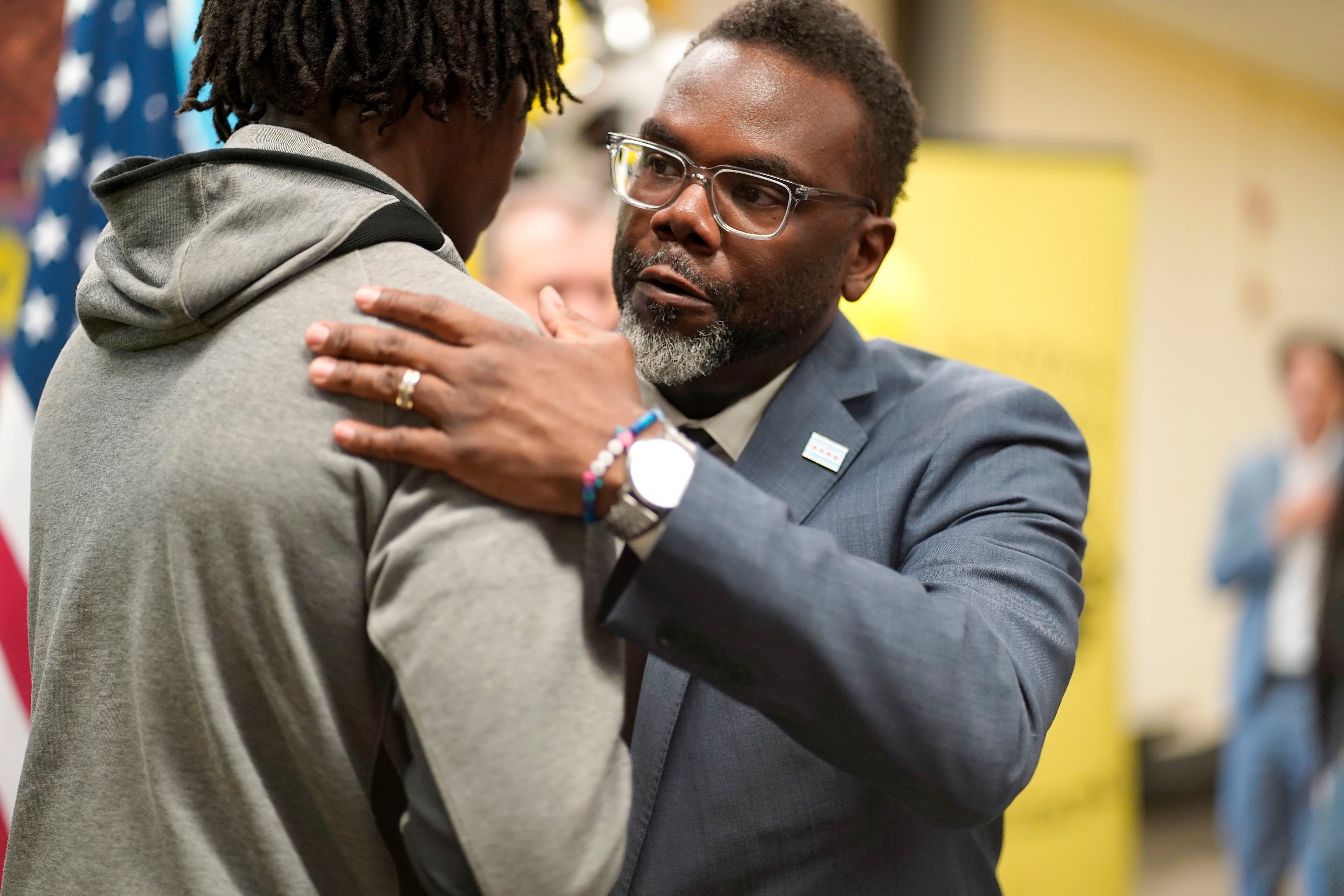Chicago Mayor Brandon Johnson is looking to the next generation for help on his first city budget proposal.
The former middle school teacher and union organizer is holding a budget roundtable discussion exclusively for Chicagoans ages 13 to 24. The July 25 event on the ninth floor of Harold Washington Library is an addition to the usual round of July budget engagement meetings.
The city is offering a perk: Five young people who participate, who are at least 16 years old, will be randomly chosen to win two four-day Lollapalooza passes.
In a statement, Johnson said the roundtable “allows our young people the opportunity to chart their own path in fulfilling that vision for hope, and become stewards for their own futures and eventual leadership of our city.”
The invitation comes as Johnson is stepping up efforts to get young people more involved in government decision making. His transition team recently recommended the creation of a paid youth council — which would resemble an existing youth commission created by his predecessor Lori Lightfoot.
City officials are inviting youth to share ideas directly with the mayor on various elements of the city’s budget, including affordable housing, homelessness, community development, arts and culture, mental health, safety, and infrastructure. But schools are not included on that list.
The Chicago Public Schools budget, which must be approved by July 1, already has been passed for the upcoming school year. The school board last month approved a flat $9.4 billion, with roughly half going directly to schools.
But financial challenges loom, with school district officials expecting a budget shortfall of $628 million by the 2025-26 school year with the depletion of federal pandemic relief funds. As Chicago shifts to an elected school board, the district may also have to pick up more costs currently paid by the city.
The next city budget will cover the 2024 calendar year. The City Council is required to pass a budget by Dec. 31 — but historically does so before Thanksgiving, and planning starts in summer. From June to September, the city’s budget office reviews departmental expenses and solicits public feedback. Mayors submit their budget proposals to the City Council by Oct. 15, which also includes a public hearing.
Typically, the mayor’s office releases a budget forecast in August. But in a rare move before leaving office, Lightfoot and her financial team released a midyear budget forecast that projected a relatively small shortfall of $85 million.
Doors to the youth budget discussion will open around 4:45 p.m., and the event will start at 5:30 p.m. City officials said there will be limited seating for adult chaperones, who cannot participate in the discussion. Youth can register here.
Reema Amin is a reporter covering Chicago Public Schools. Contact Reema at ramin@chalkbeat.org.






